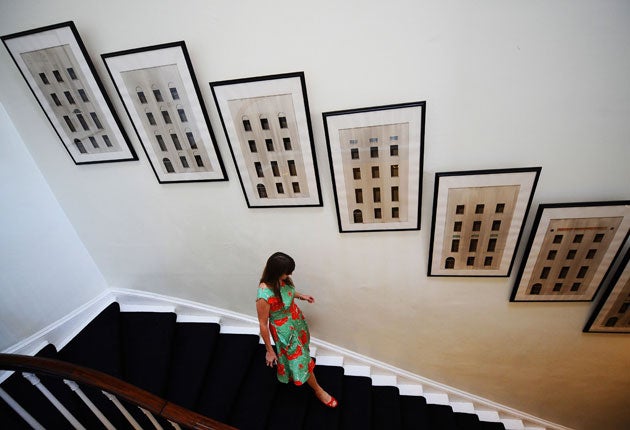The ICA, London
The avant-garde have long since left the Mall – will it ever return?

Your support helps us to tell the story
From reproductive rights to climate change to Big Tech, The Independent is on the ground when the story is developing. Whether it's investigating the financials of Elon Musk's pro-Trump PAC or producing our latest documentary, 'The A Word', which shines a light on the American women fighting for reproductive rights, we know how important it is to parse out the facts from the messaging.
At such a critical moment in US history, we need reporters on the ground. Your donation allows us to keep sending journalists to speak to both sides of the story.
The Independent is trusted by Americans across the entire political spectrum. And unlike many other quality news outlets, we choose not to lock Americans out of our reporting and analysis with paywalls. We believe quality journalism should be available to everyone, paid for by those who can afford it.
Your support makes all the difference.What is the point of the Institute of Contemporary Arts?
When conceived in 1946, it provided a counterpoint to the then stuffy Royal Academy, a basement where artists met to exchange ideas. Picasso's first UK show was held there, and Pop Art was born there after a lecture by Eduardo Paolozzi.
Today, contemporary art is the mainstream, not least at the RA, where Tracey Emin can wear a medal. The ICA, squeezed into a slice of Grade I Regency terrace on The Mall, now competes with many more flexible spaces for alternative culture across the capital.
This identity crisis was made worse by a series of internal squabbles and financial problems, culminating last summer with the departure of directors Ekow Eshun and Alan Yentob. Now, seasoned curator Gregor Muir has taken charge and, after some light refurbishment, has reopened with a new sense of purpose.
Speaking to the IoS in the new studio space, which feels like somewhere an artist might actually work, Muir says the ICA must once again be a meeting place for artists and ideas. "We are here to give risk-taking artists a space to exhibit in the heart of London, not pushed out to the perimeter," he says.
He admits the space is "not ideal", but says if anyone can find him 33,000sq ft in central London for £18,000 per year, then let him know. (A fluky 100-year peppercorn rent was negotiated with the Crown Estate in the 1960s.) One significant improvement is the removal of a major internal wall, creating a decent-sized gallery space between the foyer and the bar. Artists who exhibited in the previously cramped space were, he says, "always rather short-changed".
Muir has chosen Argentinean artist Paolo Bronstein for his opening exhibition, because his use of many media reflects the ICA's commitment not just to visual art, but also to film, music, dance and literature. (In addition to the two cinemas, theatre, galleries, bookshop and bar, there is now the studio and a reading room.) Bronstein's theme – Regency architecture – is also a Postmodern reference to the ICA's unlikely environment.
But this fascination with Neoclassicism is unlikely to set any pulses racing. A collection of bland architectural sketches form a backdrop to two pieces of performance art: downstairs, a dancer in 18th-century dress strikes sprezzatura poses while upstairs, a gallery attendant opens and shuts pieces of metamorphic furniture – two tables become a bed, and a bureau with dummy drawers folds out into a desk. It's cute and whimsical, nothing more.
For years, the ICA's main attraction – apart from some excellent seasons of foreign film – has been the bar, a cheap hang-out for artists and students. Today, it's buzzing again, and when I visited it was packed while the galleries stood empty. The ICA bar is clearly a meeting place for artists – do we need the rest? Gregor Muir laughs. "As much as artists enjoy the bar, they also want somewhere to exhibit," he says. If you say so.
Join our commenting forum
Join thought-provoking conversations, follow other Independent readers and see their replies
Comments